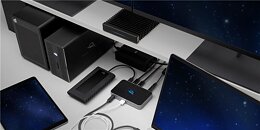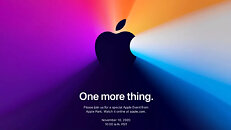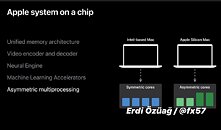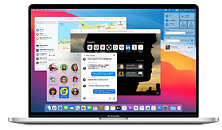Apr 17th, 2025 10:45 EDT
change timezone
Latest GPU Drivers
New Forum Posts
- Are any of these Lamptron coolers worth it? (1)
- Game Soundtracks You Love (1044)
- Can,t download Windows 11 or 10. (11)
- Weird pc slow down as soon as PCI-E card is in the system (13)
- Need advice RAM for Asus Maximus hero z890 + core ultra 7 265k (35)
- AAF Optimus Modded Driver For Windows 10 & Windows 11 - Only for Realtek HDAUDIO Chips (407)
- 5070 Ti power limit questions (46)
- ThrottleStop ratio limit changes don't apply anymore (4)
- Is it worth buying a pi5 with a broken hdmi connector (9)
- i9-14900HX Running Hot — FIVR Undervolting Locked (5)
Popular Reviews
- G.SKILL Trident Z5 NEO RGB DDR5-6000 32 GB CL26 Review - AMD EXPO
- ASUS GeForce RTX 5060 Ti TUF OC 16 GB Review
- NVIDIA GeForce RTX 5060 Ti PCI-Express x8 Scaling
- ASUS GeForce RTX 5080 TUF OC Review
- DAREU A950 Wing Review
- Palit GeForce RTX 5060 Ti Infinity 3 16 GB Review
- ASUS GeForce RTX 5060 Ti Prime OC 16 GB Review
- Zotac GeForce RTX 5060 Ti AMP 16 GB Review
- MSI GeForce RTX 5060 Ti Gaming OC 16 GB Review
- The Last Of Us Part 2 Performance Benchmark Review - 30 GPUs Compared
Controversial News Posts
- NVIDIA GeForce RTX 5060 Ti 16 GB SKU Likely Launching at $499, According to Supply Chain Leak (182)
- NVIDIA Sends MSRP Numbers to Partners: GeForce RTX 5060 Ti 8 GB at $379, RTX 5060 Ti 16 GB at $429 (127)
- Nintendo Confirms That Switch 2 Joy-Cons Will Not Utilize Hall Effect Stick Technology (105)
- Over 200,000 Sold Radeon RX 9070 and RX 9070 XT GPUs? AMD Says No Number was Given (100)
- Nintendo Switch 2 Launches June 5 at $449.99 with New Hardware and Games (99)
- NVIDIA Launches GeForce RTX 5060 Series, Beginning with RTX 5060 Ti This Week (94)
- Sony Increases the PS5 Pricing in EMEA and ANZ by Around 25 Percent (85)
- NVIDIA PhysX and Flow Made Fully Open-Source (77)
News Posts matching #Big Sur
Return to Keyword BrowsingAccell Debuts Its Next-Generation Thunderbolt 4 Docking Station
Accell, a provider of innovative, customer-centric power products and connectivity solutions, today announced the release of its Thunderbolt 4 Docking Station (P/N: K160B-002G), establishing a new standard in power technology. The Thunderbolt 4 Docking Station allows multiple peripheral connections to your systems through one single Thunderbolt 4 cable, becoming a power hub for the technology that surrounds you.
Accell upgraded its Thunderbolt 4 Docking Station power technology to also connect and expand—outfitting this updated technology with 2x Thunderbolt 4 ports, 1x DisplayPort 1.4 port, 3x USB 3.1 Gen2 Type A ports, 1x USB 2.0 Type A port, 1x SD 4.0 UHS-II card reader, 1x 3.5 mm audio combo jack, and gigabit Ethernet port. With 40 Gbps bandwidth, the Thunderbolt 4 certified docking station supports high speed data transfer, 8K video, power delivery and more. The station supports a single 8K@30 Hz or dual UHD 4K@60 Hz external monitors using any two ports of the available DisplayPort 1.4 and two Thunderbolt 4 ports.
Accell upgraded its Thunderbolt 4 Docking Station power technology to also connect and expand—outfitting this updated technology with 2x Thunderbolt 4 ports, 1x DisplayPort 1.4 port, 3x USB 3.1 Gen2 Type A ports, 1x USB 2.0 Type A port, 1x SD 4.0 UHS-II card reader, 1x 3.5 mm audio combo jack, and gigabit Ethernet port. With 40 Gbps bandwidth, the Thunderbolt 4 certified docking station supports high speed data transfer, 8K video, power delivery and more. The station supports a single 8K@30 Hz or dual UHD 4K@60 Hz external monitors using any two ports of the available DisplayPort 1.4 and two Thunderbolt 4 ports.

Apple Announces the 2021 iMac, Powered by M1 Chip, Featuring 4.5K Retina Display
Apple today introduced an all-new iMac featuring a much more compact and remarkably thin design, enabled by the M1 chip. The new iMac offers powerful performance in a design that's just 11.5 millimeters thin, with a striking side profile that practically disappears. Available in an array of vibrant colors to match a user's personal style and brighten any space, iMac features a 24-inch 4.5K Retina display with 11.3 million pixels, 500 nits of brightness, and over a billion colors, delivering a brilliant and vivid viewing experience.
The new iMac also includes a 1080p FaceTime HD camera, studio-quality mics, and a six-speaker sound system—the best camera and audio ever in a Mac. Also, Touch ID comes to iMac for the first time, making it easier than ever to securely log in, make purchases with Apple Pay, or switch user profiles with the touch of a finger. Combining the power and performance of M1 and macOS Big Sur, apps launch with blazing speed, everyday tasks feel incredibly fast and fluid, and demanding workloads like editing 4K video and working with huge images are faster than ever. The new iMac joins the incredible family of Mac models powered by M1, including MacBook Air, 13-inch MacBook Pro, and Mac mini, marking another step forward in Apple's transition to Apple silicon. iMac is the most personal, powerful, capable, and fun it has ever been, and customers can order it beginning Friday, April 30. iMac will be available in the second half of May.
The new iMac also includes a 1080p FaceTime HD camera, studio-quality mics, and a six-speaker sound system—the best camera and audio ever in a Mac. Also, Touch ID comes to iMac for the first time, making it easier than ever to securely log in, make purchases with Apple Pay, or switch user profiles with the touch of a finger. Combining the power and performance of M1 and macOS Big Sur, apps launch with blazing speed, everyday tasks feel incredibly fast and fluid, and demanding workloads like editing 4K video and working with huge images are faster than ever. The new iMac joins the incredible family of Mac models powered by M1, including MacBook Air, 13-inch MacBook Pro, and Mac mini, marking another step forward in Apple's transition to Apple silicon. iMac is the most personal, powerful, capable, and fun it has ever been, and customers can order it beginning Friday, April 30. iMac will be available in the second half of May.

OWC Announces Mac Compatibility for New Thunderbolt Hub
OWC, the premier zero-emissions Mac and PC technology company, and a respected provider of Memory, External Drives, SSDs, Mac & PC docking solutions, and performance upgrade kits, announced Mac compatibility and certification of its new OWC Thunderbolt Hub. Previously certified for Thunderbolt 4 PCs, the OWC Thunderbolt Hub is now available for new M1 Macs and all Thunderbolt 3 equipped Macs once upgraded to the new Apple MacOS 11 "Big Sur". The OWC Thunderbolt Hub will give both Mac and PC users the additional Thunderbolt ports they've always wanted.
The OWC Thunderbolt Hub offers the new Thunderbolt hubbing technology. You can now have four Thunderbolt ports, plus one USB port on your new Apple M1 Mac, Apple "Intel" Mac with Thunderbolt 3, or any Thunderbolt 4 PC with this compact hub. You can connect and charge any device with a USB-C or USB-A connector. Support up to two 4K displays or a single 5K/6K/8K display. Add high-performance storage, including NVMe solutions, and generally make your workflow work for you by adding A/V mixers, phone or tablet, even desktop accessories like a keyboard or mouse—all through a single Thunderbolt port. Accessories with past, present, or future USB or Thunderbolt interfaces connect to the OWC Thunderbolt Hub.
The OWC Thunderbolt Hub offers the new Thunderbolt hubbing technology. You can now have four Thunderbolt ports, plus one USB port on your new Apple M1 Mac, Apple "Intel" Mac with Thunderbolt 3, or any Thunderbolt 4 PC with this compact hub. You can connect and charge any device with a USB-C or USB-A connector. Support up to two 4K displays or a single 5K/6K/8K display. Add high-performance storage, including NVMe solutions, and generally make your workflow work for you by adding A/V mixers, phone or tablet, even desktop accessories like a keyboard or mouse—all through a single Thunderbolt port. Accessories with past, present, or future USB or Thunderbolt interfaces connect to the OWC Thunderbolt Hub.

Apple M1 Beats Intel "Willow Cove" in Cinebench R23 Single Core Test?
Maxon ported the its latest Cinebench R23 benchmark to the macOS "Big Sur" Apple M1 platform, and the performance results are groundbreaking. An Apple M1-powered MacBook Pro allegedly scored 1498 points in the single-core Cinebench R23 test, beating the 1382 points of the Core i7-1165G7 reference score as tested by Maxon. These scores were posted to Twitter by an M1 MacBook Pro owner who goes by "@mnloona48_" The M1 chip was clocked at 3.10 GHz for the test. The i7-1165G7 uses Intel's latest "Willow Cove" CPU cores. In the same test, the M1 scores 7508 points in the multi-core test. If these numbers hold up, we can begin to see why Apple chose to dump Intel's x86 machine architecture in favor of its own Arm-powered custom silicon, as the performance on offer holds up against the highest IPC mobile processors in the market.

Apple Could Unveil Arm-powered MacBooks on November 10
Apple late Monday sent out a public invite to an online launch event dated November 10, without revealing what it is. With new generation iPhones and Watches and iPads already announced it's likely that the November 10 event could deal with Macs, specifically, the company's very first MacBooks powered by a non-Intel processor since the company embraced x86 some decade-and-a-half ago.
Apple, having gained in-house expertise in designing powerful Arm-based SoCs, is likely to debut a new Arm-based processor with sufficient muscle to drive MacBooks, in what will be a "client-first" strategy of replacing x86 with Arm for Apple. This will likely see the most client-segment products, such as MacBooks and Mac Mini, get the processor, followed by MacBook Pros, iMacs, and lastly workstation-segment products such as the Mac Pro and iMac Pro. The November 10 event will likely only cover the very first Arm-powered MacBooks. Apple has been selling Arm-powered Mac Minis to ISVs along with a special version of macOS "Big Sur," so they could port their Mac software to the new platform. Arm-powered Macs could also see some form of unification between the iOS and macOS software ecosystems.
Apple, having gained in-house expertise in designing powerful Arm-based SoCs, is likely to debut a new Arm-based processor with sufficient muscle to drive MacBooks, in what will be a "client-first" strategy of replacing x86 with Arm for Apple. This will likely see the most client-segment products, such as MacBooks and Mac Mini, get the processor, followed by MacBook Pros, iMacs, and lastly workstation-segment products such as the Mac Pro and iMac Pro. The November 10 event will likely only cover the very first Arm-powered MacBooks. Apple has been selling Arm-powered Mac Minis to ISVs along with a special version of macOS "Big Sur," so they could port their Mac software to the new platform. Arm-powered Macs could also see some form of unification between the iOS and macOS software ecosystems.

Apple's Homebrew Mac Processor to Leverage Arm big.LITTLE
The first homebrew processor for Macs by Apple could leverage Arm big.LITTLE technology, according to a slide from a developer-relations presentation leaked by Erdi Özüağ of Donanim Haber. Apple is referring to the setup as "asymmetric cores" in its documentation, although it essentially is big.LITTLE, a technology that's been implemented by Arm SoC vendors since 2012. It combines groups of low-power (high-efficiency) and high-performance (low-efficiency) cores in response to processing demands by software, with the high-performance cores only been engaged when needed. Intel only recently introduced its rendition of this tech, called Hybrid Processing, with its Core "Lakefield" processor, and looks to scale it up with future chips such as "Meteor Lake."
Besides a multi-core big.LITTLE CPU, the Apple SoC features dedicated AI acceleration hardware, including a neural engine and matrix-multiplication hardware (dubbed ML accelerators), a dedicated video hardware encoder and decoder, and memory controller that's optimized for UMA (unified memory) for the iGPU and system memory. Apple has already started shipping Mac Mini prototypes with an Arm-based processor to its ISVs along with a special version of MacOS "Big Sur" and a wealth of software development kit to help port their x86 Mac software over to the new machine architecture.
Besides a multi-core big.LITTLE CPU, the Apple SoC features dedicated AI acceleration hardware, including a neural engine and matrix-multiplication hardware (dubbed ML accelerators), a dedicated video hardware encoder and decoder, and memory controller that's optimized for UMA (unified memory) for the iGPU and system memory. Apple has already started shipping Mac Mini prototypes with an Arm-based processor to its ISVs along with a special version of MacOS "Big Sur" and a wealth of software development kit to help port their x86 Mac software over to the new machine architecture.

Apple MacOS "Big Sur" Beta Driver Code Points to AMD "Navi 31" GPU
AMD's "Navi 20-series" GPUs implementing the RDNA2 graphics architecture are barely close to launch (September 2020 unveiling expected); and there's already talk of the "Navi 30-series." When digging through the driver code for AMD Radeon graphics that ships with Apple's MacOS "Big Sur" developer beta 1, Hardware Leaks (_rogame) uncovered pointers to an AMD "navi31" GPU. This could be the very first indication that AMD will codename successors of the RDNA2-based "Navi 2#" GPUs, such as the "Navi 21," under the "Navi 3#" series. It remains to be seen if these chips implement the RDNA3 graphics architecture, or are a refresh of RDNA2-based chips on a newer process.

Intel Gives its First Comments on Apple's Departure from x86
Apple on Monday formalized the beginning of its departure from Intel x86 machine architecture for its Mac computers. Apple makes up to 4 percent of Intel's annual CPU sales, according to a MarketWatch report. Apple is now scaling up its own A-series SoCs that use Arm CPU cores, up to performance levels relevant to Macs, and has implemented support for not just new and upcoming software ported to the new Arm machine architecture, but also software over form the iOS and iPadOS ecosystems on Mac, starting with its MacOS "Big Sur" operating system. We reached out to Intel for some of its first comments on the development.
In a comment to TechPowerUp, an Intel spokesperson said "Apple is a customer across several areas of our business, and we will continue to support them. Intel remains focused on delivering the most advanced PC experiences and a wide range of technology choices that redefine computing. We believe Intel-powered PCs—like those based on our forthcoming Tiger Lake mobile platform—provide global customers the best experience in the areas they value most, as well as the most open platform for developers, both today and into the future."
In a comment to TechPowerUp, an Intel spokesperson said "Apple is a customer across several areas of our business, and we will continue to support them. Intel remains focused on delivering the most advanced PC experiences and a wide range of technology choices that redefine computing. We believe Intel-powered PCs—like those based on our forthcoming Tiger Lake mobile platform—provide global customers the best experience in the areas they value most, as well as the most open platform for developers, both today and into the future."

Apple Introduces macOS Big Sur with a Beautiful New Design
Apple today previewed macOS Big Sur, the latest version of the world's most advanced desktop operating system. macOS Big Sur introduces a beautiful redesign that is entirely new yet instantly familiar. Safari is packed with new features, including a customizable start page, elegantly designed and more powerful tabs, quick and easy translation, and a new Privacy Report. The updated Messages app lets Mac users send and receive more personal and expressive messages, and easily keep track of and interact within group messages. Maps also offers an all-new experience with immersive features for exploring and navigating the world.
"macOS Big Sur is a major update that advances the legendary combination of the power of UNIX with the ease of use of the Mac, and delivers our biggest update to design in more than a decade," said Craig Federighi, Apple's senior vice president of Software Engineering. "With its modern and clean look, huge improvements to key apps including Safari, Messages, and Maps, and new privacy features, we think everyone is going to love the breakthrough experience that macOS Big Sur offers."
"macOS Big Sur is a major update that advances the legendary combination of the power of UNIX with the ease of use of the Mac, and delivers our biggest update to design in more than a decade," said Craig Federighi, Apple's senior vice president of Software Engineering. "With its modern and clean look, huge improvements to key apps including Safari, Messages, and Maps, and new privacy features, we think everyone is going to love the breakthrough experience that macOS Big Sur offers."
Apr 17th, 2025 10:45 EDT
change timezone
Latest GPU Drivers
New Forum Posts
- Are any of these Lamptron coolers worth it? (1)
- Game Soundtracks You Love (1044)
- Can,t download Windows 11 or 10. (11)
- Weird pc slow down as soon as PCI-E card is in the system (13)
- Need advice RAM for Asus Maximus hero z890 + core ultra 7 265k (35)
- AAF Optimus Modded Driver For Windows 10 & Windows 11 - Only for Realtek HDAUDIO Chips (407)
- 5070 Ti power limit questions (46)
- ThrottleStop ratio limit changes don't apply anymore (4)
- Is it worth buying a pi5 with a broken hdmi connector (9)
- i9-14900HX Running Hot — FIVR Undervolting Locked (5)
Popular Reviews
- G.SKILL Trident Z5 NEO RGB DDR5-6000 32 GB CL26 Review - AMD EXPO
- ASUS GeForce RTX 5060 Ti TUF OC 16 GB Review
- NVIDIA GeForce RTX 5060 Ti PCI-Express x8 Scaling
- ASUS GeForce RTX 5080 TUF OC Review
- DAREU A950 Wing Review
- Palit GeForce RTX 5060 Ti Infinity 3 16 GB Review
- ASUS GeForce RTX 5060 Ti Prime OC 16 GB Review
- Zotac GeForce RTX 5060 Ti AMP 16 GB Review
- MSI GeForce RTX 5060 Ti Gaming OC 16 GB Review
- The Last Of Us Part 2 Performance Benchmark Review - 30 GPUs Compared
Controversial News Posts
- NVIDIA GeForce RTX 5060 Ti 16 GB SKU Likely Launching at $499, According to Supply Chain Leak (182)
- NVIDIA Sends MSRP Numbers to Partners: GeForce RTX 5060 Ti 8 GB at $379, RTX 5060 Ti 16 GB at $429 (127)
- Nintendo Confirms That Switch 2 Joy-Cons Will Not Utilize Hall Effect Stick Technology (105)
- Over 200,000 Sold Radeon RX 9070 and RX 9070 XT GPUs? AMD Says No Number was Given (100)
- Nintendo Switch 2 Launches June 5 at $449.99 with New Hardware and Games (99)
- NVIDIA Launches GeForce RTX 5060 Series, Beginning with RTX 5060 Ti This Week (94)
- Sony Increases the PS5 Pricing in EMEA and ANZ by Around 25 Percent (85)
- NVIDIA PhysX and Flow Made Fully Open-Source (77)










